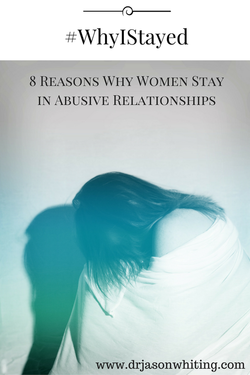 Billionaire inventor Elon Musk is known for his intense drive to change the world. He has developed technology to get humans off fossil fuels and up to the stars and is the CEO of electric car company Tesla, as well as rocket launcher SpaceX. By all accounts he is brilliant, driven, and uncompromising. His successes have earned him respect and money, but he has struggled in his romantic pursuits. His first marriage to author Justine Wilson was rocky, with fights about money, work, and the raising of five young sons. Justine reported that Elon acted as an “alpha male,” and criticized what he perceived as her flaws. She pushed back and aired marital grievances on her blog. “I am your wife,” she told him, “not your employee.” His response was that if she were his employee, he “would have fired her.” Their marriage ended in 2008 after eight years. Soon after, Elon met British model and actress Talulah Riley at a London party. They had a whirlwind romance and became engaged within weeks. Their marriage was a battle of wills. Talulah described it: “I remember him saying, ‘Being with me was choosing the hard path’. . . . It’s quite hard, quite the crazy ride.’” The couple divorced in 2012, and Musk tweeted to her, saying: “It was an amazing four years. I will love you forever. You will make someone very happy one day.” He soon decided that he was the one she would make happy, and they remarried in 2013. Despite their obvious desire to be together, the problems continued and the couple divorced a second time earlier this year. Signs of Deterioration Even the brightest and most passionate marriages can get derailed. Some relationships are planted in rocky soil from the start, but others develop weeds or die from neglect. Certain problems are particularly important to root out before they do permanent damage. Here are six research-based warning signs that indicate a relationship is heading in the wrong direction. 1. Distance or Lack of Emotion It is natural for the initial headiness of love to wear off. However, it is possible to revive emotional sparks that have gone dormant. One study showed that couples who went on interesting dates, such as rock climbing or taking Italian lessons for about eight weeks, experienced greater feelings of closeness and affection than those who stuck to traditional dinner dates. Other studies have shown that meditations focused on appreciation of a partner strengthen affection. If you have lost that loving feeling, do things together, act kind, and the love will follow. 2. Sarcasm and Disrespect It is fun to laugh, and humor bonds couples together and keeps things fresh. However, if jokes turn sarcastic or cutting, they will damage the relationship. All forms of contempt and cruelty harm both partners, and often lead to divorce. If he acts disgusted with her choice in clothes, or she mocks his parenting, it is time for a gut check. Both partners need to show self-control and be respectful in words and tone. 3. Lack of Trust Couples who are getting to know each other often stretch the truth, especially when trying to impress. They might be falsely enthusiastic (“That is so cool!”) or claim to love the same things (“That movie was my favorite also!”). One study found that strangers lied several times in the first 10 minutes of talking. Chris Rock accurately observed: “When you meet somebody for the first time you are not meeting them. You’re meeting their representative.” As relationships progress, however, people need to be authentic to develop true intimacy. When partners are deceptive, even for “good” reasons like keeping the peace or flattering, it will create distance. Although some fudging may occur in relationships (“I am fine with your mother coming over for two weeks”), all lies damage trust, and a willingness to deceive is a red flag. When trust has been lost, it takes time and energy to regain. 4. Unwillingness to Compromise If you are a vegetarian, but your significant other always insists you go to the Texas Roadkill restaurant because they love the steak, it indicates an unwillingness to compromise. Healthy couples take turns accommodating and negotiating. Different opinions do not cause divorces, but the way these differences are handled might. If partners aren’t willing to be open and accept the other’s ideas, they are in a competition. This winner-versus-loser pattern shows up in abusive relationships, where one partner feels entitled to force their preferences on the other. In contrast, healthy relationships feature a balanced give and take. Different opinions do not cause divorces, but the way these differences are handled might. 5. Lack of Intimacy An intimate relationship is one where people share themselves emotionally, intellectually, and physically. Some individuals close themselves off when feeling negative or unsafe. This can contribute to a vicious cycle, as putting up barriers leads to further distance and resentment. The cycle can be reversed through sharing meaningful words, emotions, and touches, which generates a sense of closeness and safety. As an illustration of this idea, one study had random participants pair up and ask each other questions about specific thoughts and feelings. After forty-five minutes of deep conversation, the couples looked into each other’s eyes for four minutes. These pairs who began as complete strangers became connected, and one couple eventually got married. Intimate partners can deepen their connections through opening up. If you are feeling like roommates, share feelings, touch, forgive, and your bond will tighten. 6. Control and Manipulation It is normal to negotiate with and make requests of one another, but partners should not try to force the other to feel or do certain things. Trying to control one’s partner ends in abuse. In one of my studies we interviewed individuals who controlled their partners through blame, guilt trips, pressure, and threats. These actions always fanned the flames of conflict, as one woman recalled: “[He would] goad me . . . about something from my past that was real bad and . . . then he would say, ‘Hit me, hit me,’ . . . and he would get right in my face, as close as he could and then I would slap him.” Whether or not there is violence, partners who feel unsafe, degraded, or damaged should seek help and change directions. What to do? It is unfortunate that Elon Musk’s marriages crashed back to earth after blast-off. When that happens, it breaks hearts and destroys dreams. But the good news is relationships are always changing, and can change for the better. If you see warning signs in your relationship, make a plan with your partner and seek help through books, classes, or couples’ therapy. Unhealthy relationships can revive, and even habits of abuse and control can be broken if both partners are motivated and find assistance. By working together, couples can stop the downward slide and walk back up the path of relationship success. Also published on the Blog for the Institute for Family Studies: http://family-studies.org/when-to-seek-marriage-help-relationship-red-flags/ References: The majority of these details come from Ashlee Vance, Elon Musk: Tesla, SpaceX, and the Quest for a Fantastic Future. 2015. Ecco. Arthur Aron, Christina C. Norman, Elaine N. Aron, Colin McKenna, and Richard E. Heyman, “Couples’ Shared Participation in Novel and Arousing Activities and Experienced Relationship Quality,” Journal of Personality and Social Psychology 78, no. 2 (2000): 273-284. Barbara Fredrickson, Love. 2.0, (New York: Plume, 2013). Laura E. Kurtz, and Sara B. Algoe, Putting Laughter in Context: Shared Laughter as Behavioral Indicator of Relationship Well-Being, Personal Relationships, 22, no. 4 (2015): 573–590. John Gottman, The Marriage Clinic: A Scientifically Based Marital Therapy (New York: W. W. Norton, 1999). Robert S. Feldman, James A. Forrest, and Benjamin R. Happ, “Self-Presentation and Verbal Deception: Do self-Presenters Lie More?” Basic and Applied Social Psychology 24, no. 2 (2002): 163-170. Tim Cole, “Lying to the One You Love: The Use of Deception in Romantic Relationships,” Journal of Social and Personal Relationships 18, no. 1 (2001): 107-129. John M. Gottman, The Science of Trust: Emotional Attunement for Couples (New York: WW Norton & Company, 2011). Douglas B. Smith, Jason B. Whiting, Jeff Crane, Kaitlyn Felderhoff, Annie Stapp, “Couple Communication Patterns and Intimate Partner Violence,” Research poster presented at the AAMFT National Conference, Austin, TX, 2015, September. Jennifer S. Mascaro, James K. Rilling, Lobsang Tenzin Negi, and Charles Raison. “Compassion Meditation Enhances Empathic Accuracy And Related Neural Activity.” Social Cognitive and Affective Neuroscience (2012): nss095. Jason B. Whiting, Megan Oka, and Stephen T. Fife. “Appraisal Distortions and Intimate Partner Violence: Gender, Power, and Interaction.” Journal of Marital and Family Therapy 38, no. s1 (2012): 133-149. Individuals in a coercive and unsafe relationship should first seek help through appropriate hotlines or counseling. Couples therapy is only effective in relationships free of coercive control and severe violence; otherwise it can cause further instability and abuse. For more on this issues, see Stith S. M., McCollum E. E., & Rosen K. H. (2011). Couples therapy for domestic violence: Finding safe solutions. Washington, DC: American Psychological Association. Also see Lisa Merchant and Jason Whiting, “Factors in couples’ desistance from domestic violence” (manuscript in submission). |
AuthorDr. Jason Whiting is a researcher and clinician who studies deception, honesty and conflict in intimate partners. Archives
April 2020
Categories |



 RSS Feed
RSS Feed